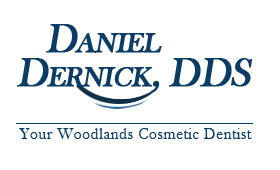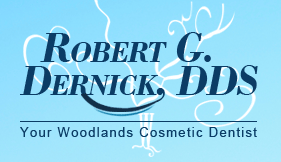Protecting Your Gums at Every Age: Personalized Prevention Strategies from Daniel Dernick, DDS
Your gums require distinctly different care throughout your lifetime, yet most people approach dental hygiene with the same routine they learned as children. At the practice of Daniel Dernick, DDS in The Woodlands, TX, we recognize that effective periodontal disease prevention must evolve as you age, addressing the unique challenges and vulnerabilities of each life stage.
Nearly half of American adults over age 30 show signs of gum disease, with prevalence and severity increasing with age. However, understanding what your gums need during your twenties versus your sixties can dramatically improve your outcomes. This guide provides decade-by-decade strategies for maintaining optimal periodontal health throughout your life.
Your 20s: Creating a Strong Foundation
The third decade of life marks a pivotal transition for oral health. Young adults gain independence in managing their healthcare decisions, making this an ideal time to establish habits that will serve them for decades to come.
Challenges Facing Young Adults
Twenty-somethings in The Woodlands, TX often face obstacles to maintaining excellent gum health. Busy work schedules, social obligations, limited budgets, and the transition away from parental oversight can all disrupt consistent oral care. College students and young professionals may skip dental appointments, convinced that tooth brushing alone suffices.
This decade frequently sees wisdom teeth emergence, which can cause gum inflammation, infection, or damage to adjacent teeth if problematic. Many people experience their first episode of gingivitis during their twenties—characterized by red, swollen gums that bleed during brushing or flossing.
The encouraging news? Gingivitis is entirely reversible through improved oral hygiene and professional intervention. Problems caught and addressed now prevent far more serious complications later.
Building Blocks for Lifelong Health
Priority number one is developing an unshakeable daily oral care routine. Brush thoroughly twice daily using proper technique—gentle circular motions, covering all tooth surfaces, for a full two minutes. Clean between your teeth once daily using dental floss, interdental brushes, or a water flosser to remove plaque from areas your toothbrush can’t reach.
Schedule professional dental cleanings and examinations twice yearly at Daniel Dernick, DDS. These appointments remove hardened plaque (calculus) that brushing can’t eliminate and allow early detection of developing problems. Think of them as preventive maintenance rather than optional extras.
Lifestyle choices significantly impact periodontal health. Tobacco use—whether smoking, vaping, or smokeless products—dramatically increases gum disease risk while impairing healing and treatment outcomes. Limiting alcohol consumption, managing stress, and maintaining balanced nutrition all support healthy gum tissue.
Navigating Your 30s: The Juggling Years
Professional demands, family responsibilities, and packed schedules characterize the thirties for many people. Paradoxically, this busy decade requires even more attention to gum health as risk factors accumulate.
Thirties-Specific Oral Health Concerns
This is the decade when gingivitis frequently progresses to periodontitis if left untreated. Periodontitis is a more severe condition affecting not just gum tissue but also the underlying bone that anchors teeth. Once bone loss occurs, it cannot regenerate naturally, making prevention crucial.
Women may experience pregnancy gingivitis due to hormonal fluctuations, causing exaggerated inflammatory responses to plaque bacteria. These changes can make gums tender, swollen, and prone to bleeding. Stress-related behaviors like teeth grinding (bruxism) or jaw clenching can damage gum tissue and accelerate recession.
Some chronic health conditions that affect gum health, including diabetes, often first manifest during the thirties. The relationship between diabetes and periodontal disease is bidirectional—each condition can worsen the other, making integrated medical and dental care essential.
Practical Prevention During Busy Years
Efficiency matters when time is limited. Electric toothbrushes remove significantly more plaque than manual brushing with less effort and time. Water flossers provide quick, effective interdental cleaning, particularly useful for people with braces, bridges, or other dental work.
Pregnant women should maintain regular dental care throughout pregnancy. Professional cleanings are safe during all trimesters and help prevent complications associated with periodontal disease, including potential impacts on pregnancy outcomes. Dr. Dernick’s office in The Woodlands provides comfortable, appropriate care for expectant mothers.
Watch for warning signs like gums receding from teeth, persistent bad breath unresolved by improved hygiene, or slight tooth mobility. These symptoms suggest disease progression beyond simple gingivitis and warrant prompt professional evaluation.
The 40s: Intensive Prevention and Management
Your forties often reveal the consequences of previous oral care—for better or worse. This decade typically requires more proactive, intensive gum health management.
Midlife Changes Affecting Gums
Cumulative wear and tear become visible. Gum recession may expose sensitive root surfaces, affecting comfort and appearance. Hormonal changes associated with perimenopause can alter gum tissue characteristics, increasing sensitivity and bleeding.
Many patients in their forties take medications for various health conditions—blood pressure, cholesterol, anxiety, depression, allergies, and more. Unfortunately, hundreds of common medications cause dry mouth as a side effect, reducing saliva’s protective benefits and increasing vulnerability to gum disease.
For patients who haven’t maintained consistent preventive care, moderate to advanced periodontitis may now require significant intervention. The good news? Modern treatments can effectively control disease and preserve tooth structure when patients commit to ongoing care.
Ramping Up Your Gum Protection
Increase professional cleaning frequency to three or four times annually if signs of gum disease appear. More frequent cleanings help control bacterial populations and allow more careful monitoring of periodontal pocket depths and other disease indicators.
Patients diagnosed with periodontitis often benefit from scaling and root planing, a thorough deep cleaning procedure performed under local anesthesia. This treatment removes bacterial deposits and calculus from below the gum line and smooths root surfaces to discourage bacterial reattachment. Combined with improved home care, it effectively halts disease progression in most cases.
Address dry mouth proactively. Stay well-hydrated throughout the day, use humidifiers in dry environments, choose alcohol-free oral care products, and consider over-the-counter saliva substitutes. Discuss medication alternatives with your physician if dry mouth persists.
Upgrade your oral hygiene tools if you haven’t already. High-quality electric toothbrushes with pressure sensors prevent overly aggressive brushing that can accelerate recession. Specialized tools like soft rubber-tip stimulators can help maintain healthy gum tissue.
50s and 60s: Preserving What You’ve Got
These decades bring additional challenges but also tremendous opportunity for successful long-term periodontal management with appropriate professional care.
Understanding Later-Life Periodontal Changes
Menopause-related decreases in bone density can affect jawbone health and tooth stability. Reduced saliva production often becomes chronic rather than occasional, creating persistent challenges. Gum tissue becomes less resilient and more vulnerable to injury or infection.
The accumulated effects of gum disease become most apparent during these decades, with tooth loss risk peaking. However, modern periodontal therapy and dental implant technology mean tooth loss is no longer inevitable—even for patients with significant disease history.
Comprehensive Periodontal Management
Comprehensive periodontal evaluation provides crucial baseline information if you haven’t had one recently. At Daniel Dernick, DDS in The Woodlands, TX, thorough assessment includes measuring pocket depths around each tooth, evaluating bone levels through X-rays, and identifying areas of active disease.
For patients managing chronic periodontitis, maintenance cleanings every three months become standard rather than optional. These periodontal maintenance appointments target areas of previous disease activity and prevent reinfection. Consistent attendance at these appointments dramatically improves long-term outcomes.
When significant bone loss has occurred, advanced procedures including bone grafting may help restore lost support structure. Antimicrobial treatments, locally applied antibiotics, or prescription-strength antimicrobial rinses can supplement mechanical cleaning for better disease control.
For teeth too damaged to save, dental implants provide durable, functional replacements that also help maintain surrounding bone structure. Implants require diligent home care and professional maintenance but offer excellent long-term success rates.
Maintaining Healthy Gums After 70
Excellent oral health remains both possible and important during your senior years. The approach simply needs adaptation to accommodate changing capabilities and circumstances.
Senior-Specific Oral Health Challenges
Physical limitations from arthritis, Parkinson’s disease, stroke, or other conditions may affect manual dexterity needed for thorough oral hygiene. Visual impairment can make proper cleaning more difficult. Cognitive changes may impact ability to maintain consistent routines.
Multiple medications remain common, with dry mouth being a frequent cumulative side effect. For patients with dentures, dental implants, or extensive dental work, proper maintenance requires specific knowledge and techniques.
Adapted Care Strategies
Assistive devices make independent oral care more manageable. Electric toothbrushes require less manual dexterity than manual brushes while providing superior cleaning. Toothbrushes with enlarged, ergonomic handles accommodate arthritic hands. Floss holders eliminate the need for complex hand positioning required by traditional flossing.
Professional dental care becomes increasingly important when thorough home care presents challenges. Regular hygiene visits ensure someone thoroughly cleans your teeth and monitors periodontal health, compensating for less-than-ideal home care when necessary.
Denture wearers must clean their appliances daily to prevent bacterial and fungal buildup that irritates gum tissue. Patients with dental implants need specialized tools and techniques for cleaning around implant abutments to prevent peri-implantitis—an inflammatory condition that can lead to implant failure.
Caregivers should receive instruction on proper oral hygiene assistance when patients can no longer manage independently. Good oral health contributes significantly to nutrition, social engagement, and overall quality of life during senior years.
Core Principles That Transcend Age
While specific tactics evolve across decades, fundamental principles remain unchanged. Daily plaque removal through thorough brushing and interdental cleaning forms the foundation of gum disease prevention at any age. Regular professional care enables early problem detection when interventions are simpler and more successful.
Tobacco cessation benefits periodontal health regardless of when you quit. Former smokers’ gum disease risk decreases over time, approaching that of never-smokers after several tobacco-free years. It’s never too late to quit and enjoy the benefits.
Dietary choices impact gum health throughout life. Anti-inflammatory foods containing omega-3 fatty acids, vitamin C, vitamin D, and antioxidants support healthy gum tissue. Minimizing added sugars and refined carbohydrates reduces fuel available to pathogenic oral bacteria. Adequate water intake maintains saliva production essential for natural oral defense mechanisms.
When to Seek Professional Evaluation
Certain signs warrant prompt attention from Dr. Dernick in The Woodlands, TX. Schedule an evaluation if you experience gums that bleed during brushing or flossing; noticeable gum recession revealing more tooth structure; persistent bad breath or unpleasant taste despite good hygiene; loose teeth or shifting tooth positions; or visible pus or discharge around teeth.
Early intervention prevents minor problems from becoming major ones. Modern periodontal treatments offer excellent success rates, particularly when disease is caught early. Don’t postpone evaluation because you’re worried about what might be found—addressing problems promptly leads to better outcomes with less treatment required.
Take Action for Your Gum Health Today
Regardless of your current age or periodontal status, positive change is within reach. Understanding your life stage-specific challenges and opportunities empowers informed decision-making and effective action.
Healthy gums support every aspect of oral function—chewing, speaking, and smiling confidently. Beyond oral health, research increasingly demonstrates connections between periodontal disease and systemic conditions including cardiovascular disease, diabetes, respiratory infections, rheumatoid arthritis, and cognitive decline. Protecting your gums protects your overall health.
At the practice of Daniel Dernick, DDS in The Woodlands, TX, we provide personalized periodontal care tailored to your individual needs, risk factors, and life circumstances. Whether you need preventive guidance, treatment for active gum disease, or help adapting your oral care routine to changing capabilities, we’re here to support your journey toward optimal oral health.
Don’t delay addressing your gum health needs. Contact our office today to schedule a comprehensive examination. We’ll evaluate your current periodontal condition, identify age-specific risk factors, and develop a customized prevention or treatment strategy aligned with your goals and lifestyle.
Your gums deserve attention and care at every stage of life. Let us help you maintain or restore healthy gums that support a beautiful smile and strong overall health for years to come.



